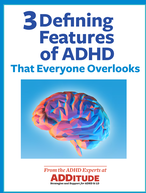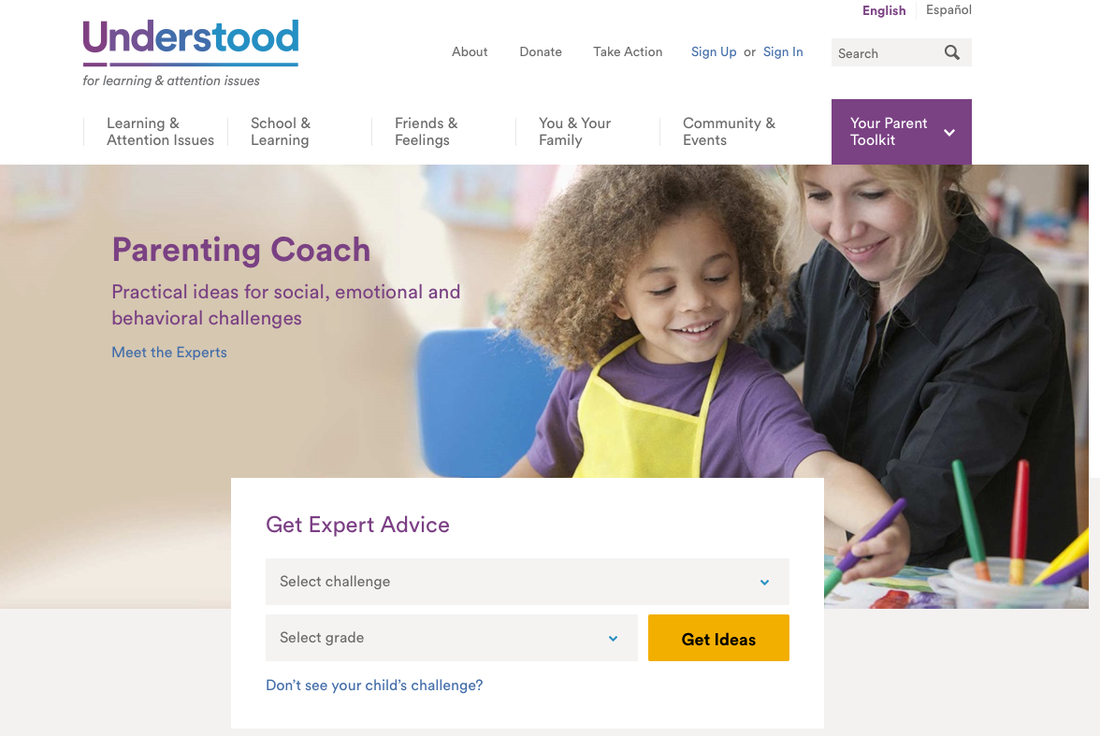 William Dodson, MD is a psychiatrist who has made his life's work diagnosing and teaching people about ADHD. Most people think of ADHD as being about lack of focus and distractibility. But Dr. Dodson explains that it is so much more complicated that that. In fact, he explains that there are 3 features of ADHD that most people, even clinicians, don't know about. They are: 1. That the ADHD mind is an "interest-based nervous system" 2. That people with ADHD experience emotional hyperarousal 3. That people with ADHD experience Rejection Sensitivity This information is so important for people with ADHD and parents of kids with ADHD, and people who love people with ADHD to understand! Please take a moment to look over this handout from ADDitude Magazine and better yet, listen to this podcast. The podcast has much more information. Well worth your time! PODCAST: 204- How ADHD Shapes Your Perceptions, Emotions & Motivation. https://podcasts.apple.com/us/podcast/204-how-adhd-shapes-your-perceptions-emotions-motivation/id668174671?i=1000407588802 ARTICLE: https://www.additudemag.com/symptoms-of-add-hyperarousal-rejection-sensitivity/ I often recommend evaluations for children or adults who are struggling at home, work or school. I think knowing strengths and weaknesses can make a huge difference, whether you are considering asking for accommodations or just want to find out what will work best with your or your child's learning style and temperament. Here are some good articles from Understood.org and APA which will help you understand the language, options and process!
Understanding Psychological/Educational Evaluations Evaluation Terminology: Types of Special Education Evaluations Evaluations and Independent Educational Evaluation (IEE) Private Vs. School Testing for Learning Disabilities Private Evaluation: What You Need to Know  Here is a good article on how hormones effect women with ADHD. I'm a big fan of women tracking their menstrual cycles, whether or not they have ADD or ADHD, so that they can be prepared for the "high hormone days"! But for women with ADD or ADHD, it's even more critical. Dr. Quinn's book is a great resource: Understanding Girls with ADHD, Updated and Revised: How They Feel and Why They Do What They Do. Take a look at the article by clicking HERE.
Do you have a child with learning or attention issues? Here is a great resource for advice and information from experts!
Take a look: www.Understood.org.  A new study by the National Institute of Mental Health in which hundreds of children were followed for several years, found that medication did not have a significant impact on grades in the long term. This finding was corroborated by other studies. An article in Nature poses the question, "How can medication that makes children sit still and pay attention not lead to better grades?" The answer, it suggests, may be that children develop tolerance to the drug or that while the drugs impact concentration, they do not impact intelligence and therefore as school becomes more complicated, grades do not improve. "When the MTA team examined the follow-up data, it found that many non-medical factors play a big part in whether improvements last. The best predictor of a child's response to treatment wasn't which treatment they were assigned, but a cluster of factors that were present at the start. Children with more advantages — higher intelligence, better social skills, intact families, higher parental education, fewer conduct problems or higher socioeconomic status — were likely to make big strides and hold onto them no matter what the treatment was, whereas children without these advantages typically progressed more slowly and regressed after treatment stopped.But disadvantaged children benefited when they received both medication and behaviour therapy. “The kids with the most problems needed the combination,” says Jensen, who adds that parents should have easier access to proven behaviour therapies. The effects of behavioural treatment don't seem to be longer-lasting than those of medication, however: once active treatment stops, they dissipate." What do you think? Click Here for a link to the article.  Problems with reading are common for people who have ADHD or focus problems. The exact reason for this is unknown; however, some research has emerged from the MIND Institute at UC Davis which might lead to one explanation. Brain scans of people with ADHD show that they tend to use more of the visual parts of their brains than "normal" people. Typically, when people read, they "hear" the words they are reading and then use their imaginations to visualize. It's possible that people with ADHD are skipping the hearing part and going right to the visual part. Not a bad thing when it comes to great imaginations and art, but possibly a problem when it comes to reading speed and comprehension. One of the strategies that has helped people with reading problems is to read in short amounts and then paraphrase the sentences, so that they are forcing themselves to use the auditory part of their brains. Of course, this would be slow at first, but for some people, as they gain this skill, they may strengthen that part of their brain to improve reading skills. If you or your child are finding yourself with this problem, give this strategy a try. What other strategies have you found successful for problems with reading and/or ADHD? Let me know! |



 RSS Feed
RSS Feed
